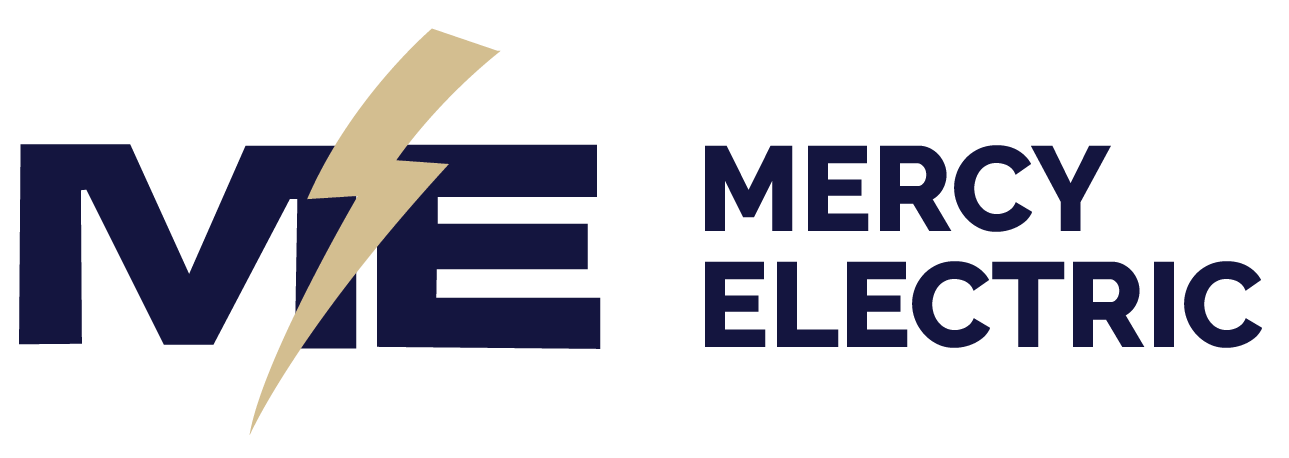Electrical Panel Upgrades: Don't Ignore These Warning Signals
Is your home’s electrical panel starting to look a little worse for wear? If so, it may be time to consider an electrical panel upgrades. An outdated or overloaded electrical panel can lead to some serious issues, such as electrical fires, power surges, and frequent blown fuses.
Your electric panel plays a crucial role in distributing power throughout your home, so it is important to ensure that it is able to handle the electrical demands of your household. If your panel is older and has only 100 amps, it may not be sufficient to support the power needs of modern electrical appliances and devices.
When considering electrical panel upgrades, it is important to enlist the help of a professional electrician. Electrical work can be dangerous if not executed properly, so it is crucial to have a skilled professional handle the installation. Upgrading your electrical panel can provide you with a safer and more efficient electrical system for your home. So, if you notice any signs of age or wear on your existing panel, it may be time to consider an upgrade to ensure the safety and functionality of your electrical system.

Why Electrical Panel Upgrades Matters
Your home’s electrical panel (also called the breaker box or fuse box) is the central hub that receives electricity from your utility company and distributes it throughout your home. The panel protects your home’s electrical wiring and equipment from power surges or overloads that can cause fires and shock hazards. However, an electrical panel that’s aging, undersized, or damaged can’t provide adequate power and safety for a modern home and all its appliances and electronics. This is why electrical panel upgrades are so important, especially when doing a remodel or renovation.
Contact Us Today About Your Project
Contact NowUpgrading to a new 200 amp or 400 amp electrical service and breaker panel will:
- Accommodate more high-wattage appliances and electronics
- Support additional circuits for remodels and expansions
- Improve safety with modern breakers and surge protectors
- Reduce risk of fires with overload protection
- Qualify for energy efficiency rebates and tax credits
Replacing an obsolete panel now can prevent huge headaches and risks down the road. Let’s review some telltale signs that your electrical panel desperately needs an upgrade.
Signs You Need to Upgrade Electrical Panel
1. Frequent Tripped Breakers or Blown Fuses
If you’re constantly resetting tripped circuit breakers or replacing blown fuses, your electrical panel doesn’t have sufficient amperage to meet your home’s needs. Trips and blows happen when you overload circuits with too many appliances and devices. Upgrading to a 200 amp or 400 amp panel provides more power to reduce nuisance trips.
2. Not Enough Circuits or Circuit Room
Today’s homes have far more outlets and circuits than older homes. If your panel is full with no space for additional circuits, it’s time for an upgrade. Newer load centers safely accommodate 50-60 circuits versus only 10-12 circuits in obsolete panels.
3. Old Fuse Box
If your home still has an old fuse box with screwin plug fuses, an upgrade should be your top priority. This antiquated system doesn’t trip safely like modern circuit breakers. Replace it ASAP before a dangerous electrical fire occurs.
4. Visible Signs of Damage, Corrosion, or Overheating
If you see any scorch marks, melted wires, discolored metal, or rust inside your electrical panel, those are red flags signaling imminent failure. Any component that overheats and corrodes compromises safety. Damaged parts must be replaced immediately.
Text Us Now For A Quote
Get Your Quote5. No Main Disconnect Switch
Modern code requires an external disconnect switch to safely cut all power to the home during emergencies or maintenance. If your panel lacks this main shutoff switch, an upgrade is needed for safety.
6. Faulty Grounding Electrode System
Proper grounding shields you from electrocution if a short occurs. Older panels often have insufficient grounding electrodes. Upgrading the electrical service allows the installation of new grounding rods or wires to protect your home.
7. Odd Smells from Electrical Panel
Notice any unusual burning or plastic odors around your panel? This likely means wiring is overheating or arcing somewhere. Don’t ignore these warning odors – have an electrician inspect and replace any compromised wiring right away.
8. Flickering Lights
Flickering or dimming lights usually indicate an overloaded electrical system with insufficient voltage. As you add more lights and outlets over the years, constant flickering is a clue your panel can no longer handle the load.
9. Buzzing, Crackling, or Sizzling Sounds
Hearing buzzes, sizzling, or crackling from your electrical panel or outlets is failed wiring about to go bad. This is one of the most urgent signs that replacement needs to happen ASAP to avoid a fire or shock. Don’t take chances with odd electrical noises.
10. Upgrading for an Addition or Renovation
Any major home addition or renovation requires upgrading the electrical panel to meet code and support additional lighting, outlets, appliances. With any major remodeling to the home, it’s wise to upgrade the electrical service simultaneously.
Dangers of an Outdated Electrical Panel
Trying to squeeze more circuits and power from an obsolete panel can have grave consequences. Some serious risks include:
- Electrical shocks – Faulty wiring and grounding cause shock hazards.
- Fires – Overloads and loose connections ignite electrical fires.
- Power surges – Damaged panels can’t suppress extreme voltage spikes.
- Equipment damage – Surges fry electronics, appliances, and devices.
- Resale value loss – Homebuyers balk at inadequate electrical systems.
- Costly repairs – Faulty panels need frequent band-aid maintenance.
Outdated panels that are undersized or in poor condition make it virtually impossible for circuits to trip or fuses to blow before critical failure occurs. Don’t let outdated electrical infrastructure put your home and family at risk when upgrades are readily available – explore electrical panel upgrades today.

Average Cost of Electrical Panel Upgrades
The cost of electrical panel upgrades will vary based on your home’s setup. Expect to pay:
- $1,500 to $3,000 for a 200 amp panel upgrade
- $3,000 to $7,000 for a 400 amp service upgrade
- $8,000 or more for a complete rewiring and very large upgrades
Additional costs may apply if your home needs new wiring, conduit installation, or other electrical repairs. Outdated breaker boxes containing dangerous materials like asbestos or aluminum wiring will also increase disposal costs.
Contact Us Today About Your Project
Contact NowGet quotes from multiple licensed electricians to find the best value for your home’s needs. Then weigh the price against the value of safety, expanded capacity, and increased home value. For older homes especially, the cost to upgrade is almost always worth it.
Is It Time to Upgrade Your Home's Electrical Panel?
If you notice any of the warning signs described above, your home’s electrical system likely needs upgrading for safety and capacity. While the cost can seem daunting, the risks and limitations of an obsolete panel just aren’t worth it. Plus, you won’t regret planning for the future with electrical panel upgrades.
Use this checklist of key warning signs to determine if your home’s electrical panel needs replacement:
- Frequent tripped breakers or blown fuses
- Not enough circuits or space in the panel
- Outdated fuse box rather than circuit breaker panel
- Signs of damage like corrosion, melted wires, or overheating
- No modern safety features like main disconnect
- Odd electrical smells or sounds
- Lights flickering or dimming throughout home
- Planning a renovation or addition requiring more power
Addressing these red flags now can help you avoid more serious safety hazards and expensive repairs down the road. Consult a professional electrician to discuss the state of your home’s electrical panel and the best upgrade options to meet your home’s needs. With a modern panel powering your home’s circuits, you’ll gain safety, convenience, and peace of mind.
Frequently Asked Questions (FAQs)
1. Is household electrical dangerous?
Yes, household electrical systems can be dangerous if not properly maintained or handled. Faulty electrical connections or outdated wiring can cause electrical fires and other hazards.
2. Why do I need to upgrade my electrical?
Upgrading your electrical system is necessary for several reasons. Firstly, if your panel needs to be relocated or replaced due to renovations or safety concerns. Secondly, the growing demand for electricity often requires more electrical capacity to accommodate large appliances and modern technology.
3. What is the cost of upgrading my electrical?
The cost to upgrade an electrical panel can vary depending on factors such as the size of your home and the extent of the upgrade. It’s best to consult with a local electrical company or hire a professional electrical contractor to get an accurate estimate.
4. How many amps do I need for my home?
The number of amps you need for your home depends on your electrical load. Factors such as the size of your home, the number of electrical appliances, and the overall electrical usage should be considered when determining the required amp capacity.
5. What are the risks of having an old panel?
Having an old panel can pose several risks. Outdated panels may not meet current electrical codes and safety standards, increasing the likelihood of electrical issues and potential hazards. Additionally, old panels may not provide sufficient electrical energy for modern households.
6. Can I upgrade to 400 amps?
Yes, upgrading to 400 amps is possible depending on your electrical system and the specific requirements of your home. However, it’s important to consult with a professional electrical contractor to assess if your home can support such an upgrade.
Text Us Now For A Quote
Get Your Quote7. How do I choose the right electrical box for my home?
Choosing the right electrical box for your home involves considering factors such as the size of your home, the electrical load, and the specific requirements of your local electrical codes. It’s recommended to consult with a professional electrical contractor to ensure the appropriate box is installed.
8. What are the benefits of upgrading my electrical?
Upgrading your electrical system can provide several benefits. It improves safety by reducing the risk of electrical fires and

